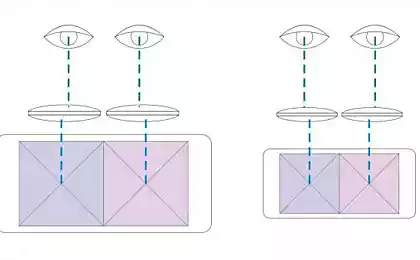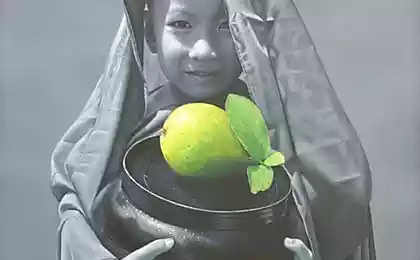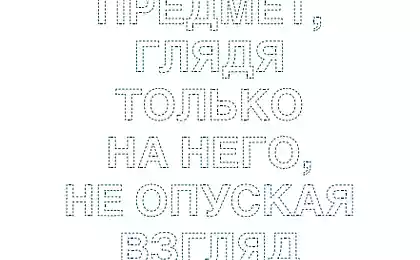818
6 tricks statistics that show you the magic
Miracles - this is a common deloVeroyatnost manages all our lives, and the brain is not able to immediately calculate it. The gambling industry denies this fact: tell someone that there is 1 in 100 million chance of winning the lottery and they say - "It seems that someone will win!»
We can not blame them - there are many situations where the likelihood is similar to black magic. Site picked a few examples in which it is difficult to believe, but ...
1. shuffling a deck of cards, you create a sequence that never existed before Condition:
Suppose you give the card in a poker game. At the same time clear: you - experienced the dealer, not one of those people who just clumsily twist cards in the hands of the children. You expertly shuffles the cards kicking them from hand to hand, juggling, and so on. E., Until, eventually, do not come to the conclusion that the cards are arranged in a completely random order.
What are the odds that the configuration of the deck, you now hold, is the same as that which you stirred the last time? One chance in 1000? One of 10,000? Do not forget that we have only 52 cards.
Solution:
Now you need to feel special, because it is almost certain that the configuration of the deck that you hold in your hand, never created any one person in the history of mankind on this Earth, and none of its parallel universe. You are holding in your hands is something that will never be created again, and from now until the end of time.
Agree, it is unlikely that 52 cards - a lot. But attempts to calculate the number of possible combinations of these cards, you'll need more than one free evening. Total statistics combinations deck of 52 cards - this is what is known as the "52 factorial», or "52!". Completely this number looks like:
80, 658, 175, 170, 943, 878, 571, 660, 636, 856, 403, 766, 975, 289, 505, 440, 883, 277, 824, 000, 000, 000, 000. Imagine " If every star in our galaxy were a trillion planets, and each planet would live a trillion people, and each person had a trillion decks of cards, and they would have shuffled cards 1,000 times per second, and did so from the time of the Big Bang, it is possible, only now the order would be repeated ».
If it blows your mind, think of it this way: there are only 52 cards, but almost half the alphabet letters. Now think about the number of books written by the combination of these letters. They are incredibly much.
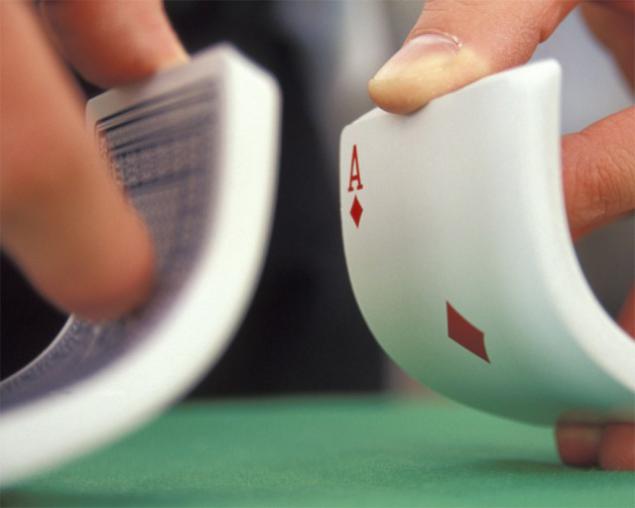
2. The number of "pi" can be calculated randomly thrown on the table bunch of staples Condition:
Let's play a quick game. All you need is a piece of paper, a pencil and a handful of clips (or needles, nails, or something like that).
Draw on paper two parallel lines, a length of about two staples. Now, throw a handful of clips to the space between the lines. No matter how many clips you use, but the more the better, so act boldly.
Take the total number of clips, multiply it by two, then divide that number by the number of staples that relate to one of the lines. Thus, if you threw 20 staples and 13 of them referred to one of the lines, you would divide 40 to 13. The number you get will be close to the "Pi". and if you increase the number of clips, it will become closer and closer.
Solution:
Yes, "Pi" - is one of those mysterious things that simply exist in the universe. In this case, if it is assumed that even paperclips were thrown by chance, all of the parties and the situation will tend to alignment.
In much the same way coin toss will tend to equal the number of "heads and tails", even though each individual roll is random. In this case, the longer you throw a coin, the more accurate getting a result, since the constancy smoothes statistical deviations.
3. You can "trick" the game of "heads or tails", making the course a second Condition:
Imagine that someone challenges you to play "heads-tails." The rules are simple - each of you predicted sequence of three shots, or an eagle or tails. Then you throw a coin as long as there will be composed one of your sequences. If the sequence of your opponent appears first, you give him $ 20. If your first combination is formed - it is your twenty. If you're both playing honestly think that your chances of winning are 50 to 50, is not it?
Solution:
Even if you have no coins to the secret, mirrors or magnet, and the probability of each throw is really 50 to 50, you can still manipulate the game. Your opponent has a 87 percent chance to beat you, and the secret is to make your move a second. For example, a person who has made the first move, called the "eagle, heads and tails." The objective of the second player - memorize and perform two steps:
Your first name should be the opposite of the second title contender. In this case - tails. Your second and third names must match the names of the first two opponents. In this case - the eagle, eagle. If you follow these rules, your chances of winning will always be higher, sometimes slightly, sometimes much more than your opponent. If you do not believe us, try it yourself and see. This is called "intransitive game." That is, each option that you can do any better or worse than any other option. It is virtually the same as the game "Rock-paper-scissors", only in this case, making the first move, you're talking to your opponent, you choose rock, paper or scissors before he made his choice. It is not the first to go. Following the above rules, you will almost always be able to turn everything in their favor.
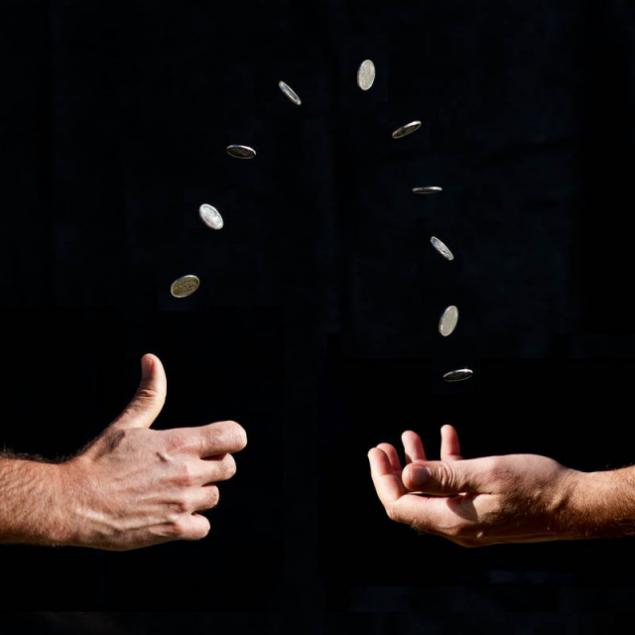
4. The probability that a relative of the man as a man - one in three (50 not 50) Condition:
You meet a guy named, say, Chad. Chad tells you that he has a relative (brother or sister), but he did nothing about it you do not say. What is the probability that a relative of Chad - brother? It should be 50 to 50, right? The fact that Chad man can not have any influence on the floor of his relatives.
Solution:
If Chad man, chances are that he has a brother, dropped to one in three. Welcome to the mad world of mathematical probability.
We know that Chad man, but not older than he or his younger relative. You also know that there are four possible gender combinations for two children, depending on the order in which they are born a boy / boy, boy / girl, girl / boy, girl / girl. Each combination has exactly one chance out of 4.
But wait! You also know that Chad is the man, so the combination exclude girl / girl. Thus, we are boy / girl, girl / boy, or boy / boy. And in two of the three cases he has a sister, leaving only 1 in 3 chance that he has a brother.
There is a similar paradox, called "Monty Hall Problem". Here are three doors - one of them for a new car, but for the other two - a goat. You choose one of the doors, but instead to show your prize, senior tells you that for any of the two remaining doors have goats and proposes to change the decision. Even though you now have two doors to choose, and a seemingly chance 50-50, your chance that you choose the right door is still 1 to 3. That Same thing with the sister of Chad - even though it would seem, it could be either a brother or sister, in fact, he could be a brother, sister or sister.
5. In a small group of people the probability that two of them birthday falls on the same day, is almost 100% Condition:
Suppose each zazvat you to a party with a bunch of strangers to you people. And while you're with a huge sense of discomfort are standing in anticipation of an earthquake or something else that would give a good reason to leave you fit one of the participants of the festival, and casually mention that today is his birthday.
«It can not be! - You say - I, too, have a birthday today! Is that possible? »
Solution:
Provided that none of you is lying, the odds are incredibly high. The probability that in a group of only 23 people have two birthdays coincide, is about 50%.
Here it is easy to get confused: since the year may be no more than 366 days (including leap year), and the group of all 23 people, it seems that the probability of such a coincidence is 1 to 15. This is true if you're talking about the chances of someone one to share his birthday with another person. But we're talking about two people.
So, when you meet someone for the first time, the chance that your birthdays coincide, is one of the 366. But the other has the same chance! Now we have to multiply the probability that the result will give one chance in 122. With the increase in the number of people the likelihood that the date of birth of each unique, decreases much faster than you might imagine - in 10 people have a 10 percent chance of matching birthdays, while 20 people have this chance is 40%.
If you think it's still magic, you can get on the Internet a list of 20 random people - for example, a list of players in team sports. The list of the 25 players there are two couples celebrating a birthday on the same day.
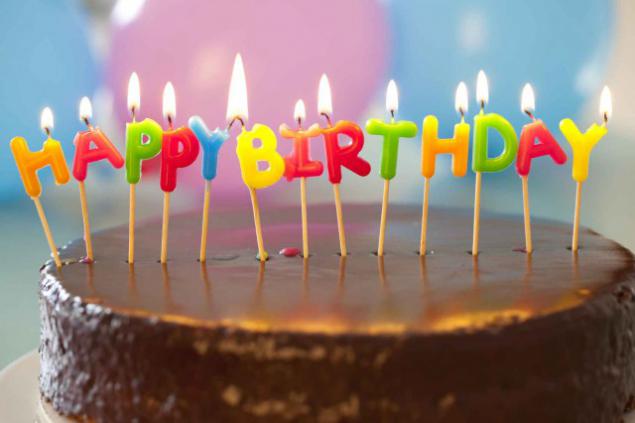
6. Probability dictates that "miracles" - is common Condition:
We wrote a bunch of articles about the amazing coincidence - the events that actually occurred, despite the extremely low chance. Take one of our favorite examples - in 1974 in Bermuda 17-year-old was driving a moped and was hit by a taxi. < Exactly one year later, his brother was killed driving the same moped, on the same street, the same as a taxi, which carried the same passenger. A great story for "The X-Files».
Solution:
In this situation, it is impossible to calculate the probability, as we did above, because you can not quantify each variable (t. E. How often the passengers catching a taxi on the street, as is often the brothers went on the same street as the other vehicles encountered to them, and so on. d.). But we can try to calculate the odds of winning the lottery.
So, what are the chances of double jackpot in the lottery? Take notes, I'll just tell you - about one in several trillion. , but search Google for people who have done it and you will get dozens of results. Here, the same principle as that in Example birthday above. Although the chances that this will happen with any one specific person, is negligible, the likelihood that it will happen to someone is almost 100%. The difficulty in understanding the probability of such things is that we see ourselves as the center of the universe. When we ask the question: "what are the chances?" we actually mean "What are the chances that this will happen to me?»
Several statisticians conducted an experiment in which people were asked to tell about what happened to them impossible coincidences and calculate how likely they were actually. The result? The miracles were even more mundane than they expected.
When one woman reported that twice in four months won the lottery, they calculated that the probability of this case with this particular woman was one of the 17 trillion. She is a happy woman on the planet. However, the ability of any person to win the lottery twice in four months is close to 1 in 30. In principle, this is a serious guarantee that someone will be incredibly rich twice before the end of this year. < br />
It just will not happen to you.
via www.cracked.com/article_22432_6-bizarre-statistics-that-prove-math-black-magic_p2.html
We can not blame them - there are many situations where the likelihood is similar to black magic. Site picked a few examples in which it is difficult to believe, but ...
1. shuffling a deck of cards, you create a sequence that never existed before Condition:
Suppose you give the card in a poker game. At the same time clear: you - experienced the dealer, not one of those people who just clumsily twist cards in the hands of the children. You expertly shuffles the cards kicking them from hand to hand, juggling, and so on. E., Until, eventually, do not come to the conclusion that the cards are arranged in a completely random order.
What are the odds that the configuration of the deck, you now hold, is the same as that which you stirred the last time? One chance in 1000? One of 10,000? Do not forget that we have only 52 cards.
Solution:
Now you need to feel special, because it is almost certain that the configuration of the deck that you hold in your hand, never created any one person in the history of mankind on this Earth, and none of its parallel universe. You are holding in your hands is something that will never be created again, and from now until the end of time.
Agree, it is unlikely that 52 cards - a lot. But attempts to calculate the number of possible combinations of these cards, you'll need more than one free evening. Total statistics combinations deck of 52 cards - this is what is known as the "52 factorial», or "52!". Completely this number looks like:
80, 658, 175, 170, 943, 878, 571, 660, 636, 856, 403, 766, 975, 289, 505, 440, 883, 277, 824, 000, 000, 000, 000. Imagine " If every star in our galaxy were a trillion planets, and each planet would live a trillion people, and each person had a trillion decks of cards, and they would have shuffled cards 1,000 times per second, and did so from the time of the Big Bang, it is possible, only now the order would be repeated ».
If it blows your mind, think of it this way: there are only 52 cards, but almost half the alphabet letters. Now think about the number of books written by the combination of these letters. They are incredibly much.

2. The number of "pi" can be calculated randomly thrown on the table bunch of staples Condition:
Let's play a quick game. All you need is a piece of paper, a pencil and a handful of clips (or needles, nails, or something like that).
Draw on paper two parallel lines, a length of about two staples. Now, throw a handful of clips to the space between the lines. No matter how many clips you use, but the more the better, so act boldly.
Take the total number of clips, multiply it by two, then divide that number by the number of staples that relate to one of the lines. Thus, if you threw 20 staples and 13 of them referred to one of the lines, you would divide 40 to 13. The number you get will be close to the "Pi". and if you increase the number of clips, it will become closer and closer.
Solution:
Yes, "Pi" - is one of those mysterious things that simply exist in the universe. In this case, if it is assumed that even paperclips were thrown by chance, all of the parties and the situation will tend to alignment.
In much the same way coin toss will tend to equal the number of "heads and tails", even though each individual roll is random. In this case, the longer you throw a coin, the more accurate getting a result, since the constancy smoothes statistical deviations.
3. You can "trick" the game of "heads or tails", making the course a second Condition:
Imagine that someone challenges you to play "heads-tails." The rules are simple - each of you predicted sequence of three shots, or an eagle or tails. Then you throw a coin as long as there will be composed one of your sequences. If the sequence of your opponent appears first, you give him $ 20. If your first combination is formed - it is your twenty. If you're both playing honestly think that your chances of winning are 50 to 50, is not it?
Solution:
Even if you have no coins to the secret, mirrors or magnet, and the probability of each throw is really 50 to 50, you can still manipulate the game. Your opponent has a 87 percent chance to beat you, and the secret is to make your move a second. For example, a person who has made the first move, called the "eagle, heads and tails." The objective of the second player - memorize and perform two steps:
Your first name should be the opposite of the second title contender. In this case - tails. Your second and third names must match the names of the first two opponents. In this case - the eagle, eagle. If you follow these rules, your chances of winning will always be higher, sometimes slightly, sometimes much more than your opponent. If you do not believe us, try it yourself and see. This is called "intransitive game." That is, each option that you can do any better or worse than any other option. It is virtually the same as the game "Rock-paper-scissors", only in this case, making the first move, you're talking to your opponent, you choose rock, paper or scissors before he made his choice. It is not the first to go. Following the above rules, you will almost always be able to turn everything in their favor.

4. The probability that a relative of the man as a man - one in three (50 not 50) Condition:
You meet a guy named, say, Chad. Chad tells you that he has a relative (brother or sister), but he did nothing about it you do not say. What is the probability that a relative of Chad - brother? It should be 50 to 50, right? The fact that Chad man can not have any influence on the floor of his relatives.
Solution:
If Chad man, chances are that he has a brother, dropped to one in three. Welcome to the mad world of mathematical probability.
We know that Chad man, but not older than he or his younger relative. You also know that there are four possible gender combinations for two children, depending on the order in which they are born a boy / boy, boy / girl, girl / boy, girl / girl. Each combination has exactly one chance out of 4.
But wait! You also know that Chad is the man, so the combination exclude girl / girl. Thus, we are boy / girl, girl / boy, or boy / boy. And in two of the three cases he has a sister, leaving only 1 in 3 chance that he has a brother.
There is a similar paradox, called "Monty Hall Problem". Here are three doors - one of them for a new car, but for the other two - a goat. You choose one of the doors, but instead to show your prize, senior tells you that for any of the two remaining doors have goats and proposes to change the decision. Even though you now have two doors to choose, and a seemingly chance 50-50, your chance that you choose the right door is still 1 to 3. That Same thing with the sister of Chad - even though it would seem, it could be either a brother or sister, in fact, he could be a brother, sister or sister.
5. In a small group of people the probability that two of them birthday falls on the same day, is almost 100% Condition:
Suppose each zazvat you to a party with a bunch of strangers to you people. And while you're with a huge sense of discomfort are standing in anticipation of an earthquake or something else that would give a good reason to leave you fit one of the participants of the festival, and casually mention that today is his birthday.
«It can not be! - You say - I, too, have a birthday today! Is that possible? »
Solution:
Provided that none of you is lying, the odds are incredibly high. The probability that in a group of only 23 people have two birthdays coincide, is about 50%.
Here it is easy to get confused: since the year may be no more than 366 days (including leap year), and the group of all 23 people, it seems that the probability of such a coincidence is 1 to 15. This is true if you're talking about the chances of someone one to share his birthday with another person. But we're talking about two people.
So, when you meet someone for the first time, the chance that your birthdays coincide, is one of the 366. But the other has the same chance! Now we have to multiply the probability that the result will give one chance in 122. With the increase in the number of people the likelihood that the date of birth of each unique, decreases much faster than you might imagine - in 10 people have a 10 percent chance of matching birthdays, while 20 people have this chance is 40%.
If you think it's still magic, you can get on the Internet a list of 20 random people - for example, a list of players in team sports. The list of the 25 players there are two couples celebrating a birthday on the same day.

6. Probability dictates that "miracles" - is common Condition:
We wrote a bunch of articles about the amazing coincidence - the events that actually occurred, despite the extremely low chance. Take one of our favorite examples - in 1974 in Bermuda 17-year-old was driving a moped and was hit by a taxi. < Exactly one year later, his brother was killed driving the same moped, on the same street, the same as a taxi, which carried the same passenger. A great story for "The X-Files».
Solution:
In this situation, it is impossible to calculate the probability, as we did above, because you can not quantify each variable (t. E. How often the passengers catching a taxi on the street, as is often the brothers went on the same street as the other vehicles encountered to them, and so on. d.). But we can try to calculate the odds of winning the lottery.
So, what are the chances of double jackpot in the lottery? Take notes, I'll just tell you - about one in several trillion. , but search Google for people who have done it and you will get dozens of results. Here, the same principle as that in Example birthday above. Although the chances that this will happen with any one specific person, is negligible, the likelihood that it will happen to someone is almost 100%. The difficulty in understanding the probability of such things is that we see ourselves as the center of the universe. When we ask the question: "what are the chances?" we actually mean "What are the chances that this will happen to me?»
Several statisticians conducted an experiment in which people were asked to tell about what happened to them impossible coincidences and calculate how likely they were actually. The result? The miracles were even more mundane than they expected.
When one woman reported that twice in four months won the lottery, they calculated that the probability of this case with this particular woman was one of the 17 trillion. She is a happy woman on the planet. However, the ability of any person to win the lottery twice in four months is close to 1 in 30. In principle, this is a serious guarantee that someone will be incredibly rich twice before the end of this year. < br />
It just will not happen to you.
via www.cracked.com/article_22432_6-bizarre-statistics-that-prove-math-black-magic_p2.html






